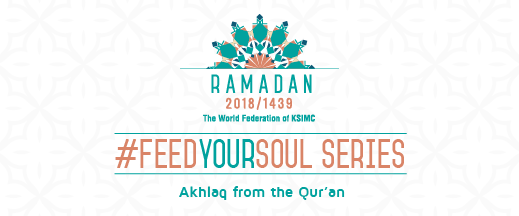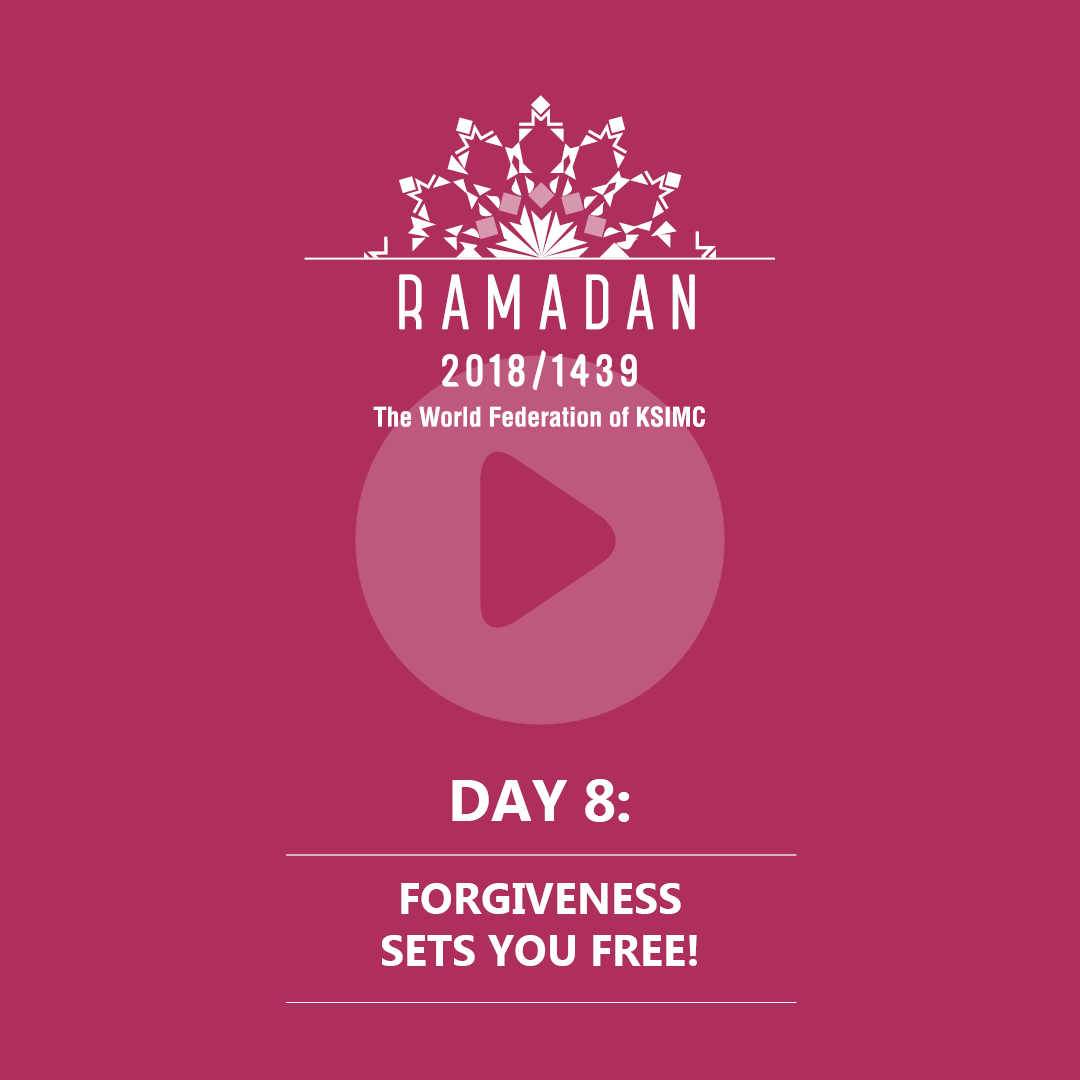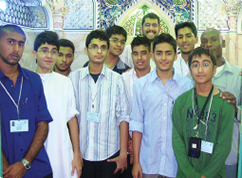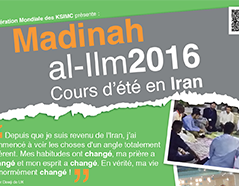
The first 5 videos are an introduction to the Holy month of Ramadan.
Take part in the daily reflection\challenge to help you get closer to Allah (swt).
< Click here to watch previous videos
Day Eight
Forgiveness Sets You Free!
خُذِ الْعَفْوَ وَ أْمُرْ بِالْعُرْفِ وَ أَعْرِضْ عَنِ الْجاهِلِين (الاعراف: 199)
Adopt [a policy of] excusing [the faults of people], bid what is right, and turn away from the ignorant.

This verse, in all its simplicity and briefness, includes the best lessons of Akhlaq; lessons of personal and social ethics, in relation to friends and enemies, practical and verbal, positive and negative, for leaders and for the nation, for the time of the Holy Prophet (s) and also for these times; and according to Imam al-Sadeq (as) there is no verse in the Qur'an that sums up the best of Akhlaq like this verse.
In this verse, Allah (swt) commands His Prophet (s) to three things one of which is forgiving others. Forgiveness of others is among the honorable human qualities and noble men prove the nobility of their souls by forgiving others for their mistakes; according to Imam Ali (as) forgiveness when one is in a position of power, is thankfulness for power.
Even though many meanings have been mentioned for the word 'afw', in this verse it refers to moderation and balance.
The expression' adopt [a policy of] excusing [the faults of people]' means to have control over excusing and forgiving others and to use it in the right place and therefore sometimes one must deal with others strongly: and let not pity for them overcome you in Allah's (swt) law (an-Nur: 2).
There is no doubt that the forgiveness that is talked about in the first part of the verse refers to forgiveness in personal matters not matters of the rights of other people or public property.
When this verse was revealed the Prophet (s) asked Jibraeel for the explanation and method of acting upon this verse. Jibraeel brought back this message: to forgive those who have oppressed you, to give to those who have deprived you and to connect with those who have cut you off.
Messages:
1. One must always choose the path of moderation and balance.
2. Forgiving others for their mistakes is in cases where the act is committed against our person and not in cases where it is against others as this will deprive people of their rights and spread corruption and sinning in society.
3. When one has the power to punish and yet forgives that is true power and thankfulness for that power.
< Click here to watch previous videos












